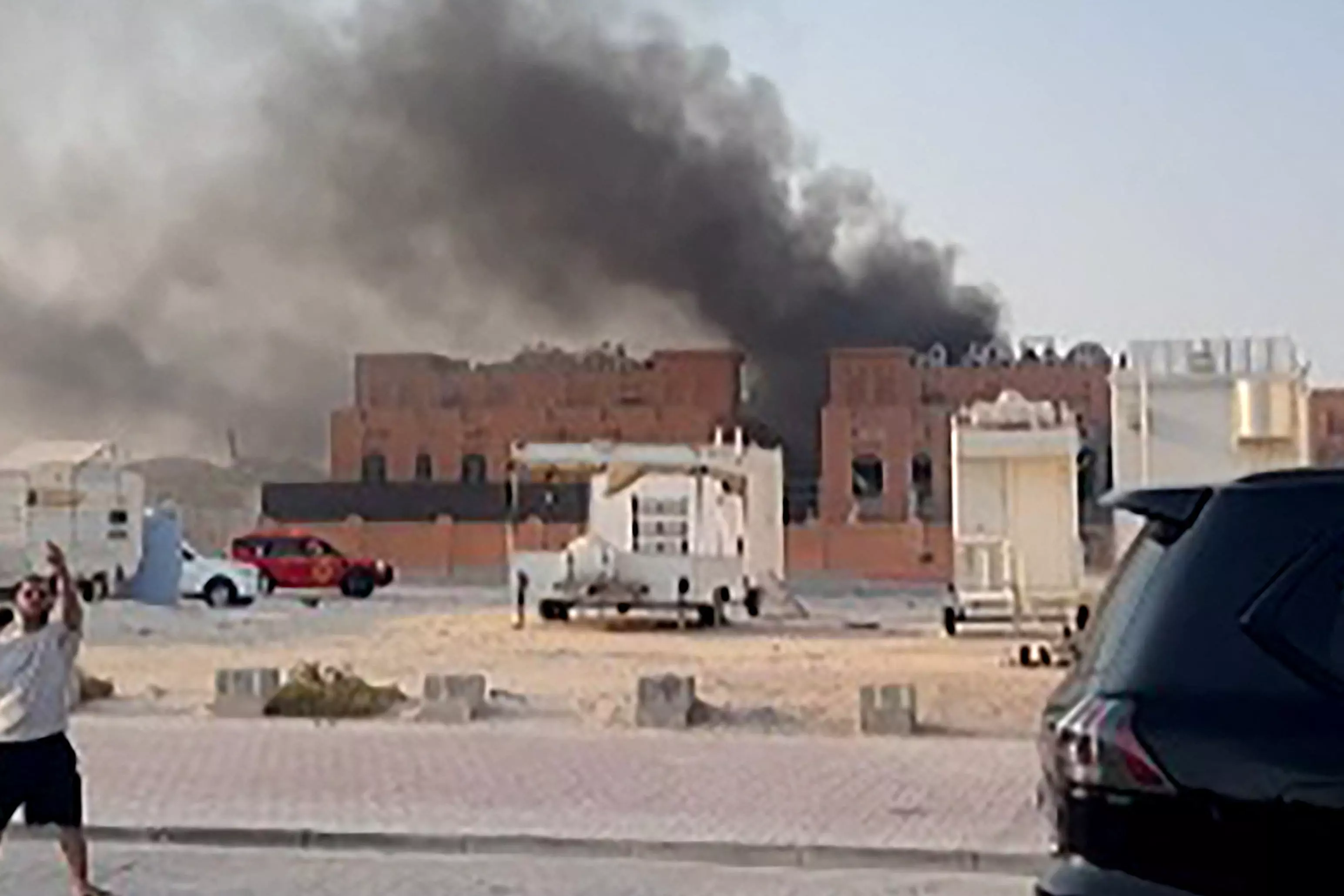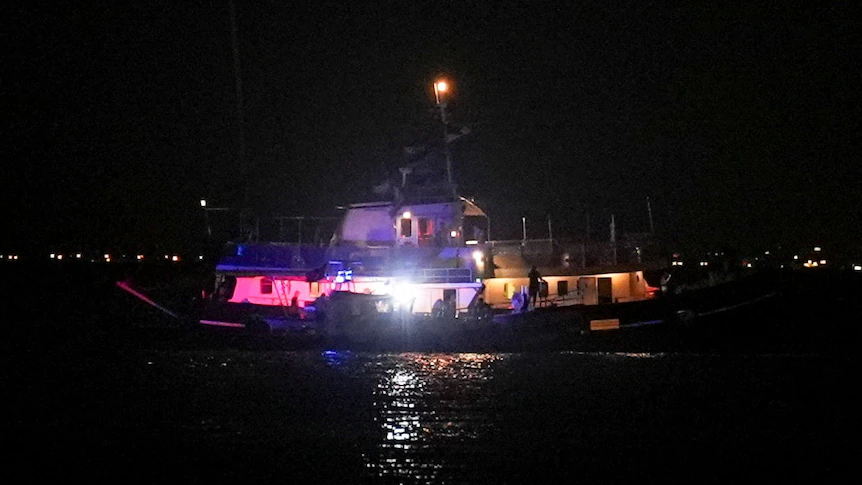
The tiny, gas-rich Gulf Arab state of Qatar hosts the biggest U.S. military base in the Middle East. It has evacuated tens of thousands of American citizens from Afghanistan. It has been designated a U.S. “major non-NATO ally.” It has even lavished a $400 million jumbo jet on President Donald Trump for use as Air Force One. None of that protected this quiet peninsula in the Persian Gulf from coming under an Israeli aerial attack on Tuesday as it mediated U.S.-backed negotiations to end the Israel-Hamas war. Israel struck a meeting of Hamas’ exiled political leadership in Qatar’s capital of Doha, sending plumes of smoke and debris rising over a city of air-conditioned World Cup stadiums and luxury malls typically shielded by U.S. interceptor batteries . Since Hamas’ Oct. 7, 2023, attack on southern Israel ignited its war in Gaza, the Israeli military has targeted Hamas leaders far afield. But while Tehran and Beirut were seen as fair game , Israel had refrained from striking Hamas’ political office in Qatar, the key mediator and U.S. ally that Israeli leadership relied on as a back channel to the Palestinian militant group. On Tuesday, Israel made a dangerous gamble, analysts say, poisoning Israel-Hamas ceasefire talks , sending political shock waves through the region and raising doubts about historical U.S. security guarantees for its Gulf Arab allies. It didn’t immediately pay off for Israel: Hamas claims its senior leadership survived the strike. “This is a broader shock for the international order, raising questions about sovereignty and the free rein being given to Israel,” said Sanam Vakil, the director of the Middle East and North Africa Program at Chatham House. “The reliability of the United States in the Middle East will be questioned.” U.S. knowledge of attack roils its alliance with Qatar Qatar has long come under fire for hosting Hamas and faced rising pressure to evict its top leadership. But it was a U.S.-supported arrangement that allowed Hamas to open its political office in Doha in 2012 as Washington sought to establish indirect lines of communication with the Palestinian militant group it designates as a terrorist organization. Hosting Hamas and other armed groups, such as the Taliban , has helped Qatar carve out an influential position in global conflict mediation. Qatari officials believed that the emirate’s designation as a major U.S. non-NATO ally and its Al Udeid Air Base , regional headquarters of the U.S. Central Command, lent it security cover that would restrain Israel. Israeli strikes shattered that illusion on Tuesday, crashing into central Doha despite all the U.S. missile batteries and radar systems tracking aerial threats from Al Udeid. The U.S. said Israel alerted it before striking. Whatever warning the White House said it passed to Qatar was too little, too late: Qatari Foreign Ministry spokesman Majed al-Ansari said his country was only notified as the bombs were falling. Shock reverberates across Gulf Arab states The apparent U.S. disregard for Qatari security and sovereignty rattled nerves across the sheikdoms of the Persian Gulf, which, despite past ideological disputes over Qatar’s Islamist sympathies , marshaled a strong show of unity. “The security of the Arab Gulf states is indivisible, and we stand heart and soul with the sisterly Qatar, condemning the treacherous Israeli attack,” said Anwar Gargash, a diplomatic adviser to the rulers of the United Arab Emirates. Although the U.S. remains the only country willing to station thousands of troops across the Persian Gulf, the perception of Washington as an unreliable ally to Gulf Arab nations has grown in recent years, analysts say. The UAE and Saudi Arabia in particular have sought to diversify their relationships, growing closer to China and Russia. “They don’t want to rely solely on the U.S. for security, they want ties with a range of global actors,” said Will Todman, a senior fellow with the Middle East program at the Washington-based Center for Strategic and International Studies. “(Israel’s) strikes will accelerate that trend.” Gulf Arab countries — with small militaries and oil-dependent economies uniquely vulnerable to shocks of any kind — now see Israel’s belligerence as a source of growing concern, even more so than Iran’s. While Emiratis and Saudis view political Islam as a threat and loathe Hamas, experts say they’d prefer a detente with their weakened rivals to the continuation of an ever-widening war that could trigger strikes on their soil. “The Gulf states are not secretly happy about the strikes on Hamas,” …



